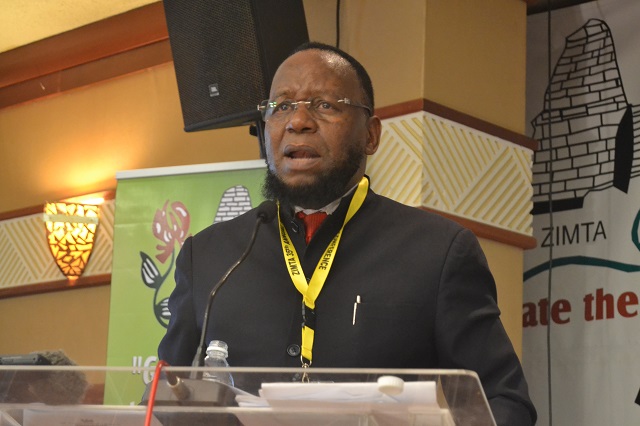Senate hails VAT suspension, calls on business to cut prices

Business Reporter
THE Senate has applauded the suspension of Statutory Instrument 20 of 2017, which had imposed a 15 percent Value Added Tax (VAT) on basic consumer goods and called on businesses to slash prices.
The suspended tax was proposed in the 2017 national budget and had been imposed on rice, margarine, cereals, maheu, potatoes, meat (pork, beef, fish and chicken) with effect from last month.
The new regulation had sparked public outcry after businesses and suppliers jumped to increase prices by margins of up to 40 percent in the last few weeks.
Finance and Economic Development Minister Patrick Chinamasa announced the suspension of the new tax in the Upper House on Wednesday after making a similar presentation in the House of Assembly the previous day.
“I would want to welcome the move taken by the minister that he has listened and will make further consultations,” Chief Senator Ngungumbane said.
He then sought clarification on what Government was doing to ensure that the prices of affected goods were reversed to previous levels.
“Shops and supermarkets had gone ahead to increase the prices of those goods that you have indicated. What action are you going to take to correct that?” said Chief Ngungumbane.
In response, Minister Chinamasa, who is also a member of the Senate, said now that Government had reversed the 15 percent VAT, businesses had “no justification for increases” in pricing.
“Where retailers have included the 15 percent VAT in the price on the shelf, it suggests mischief because it means when they get to the till, they charge you an additional 15 percent. So, if that is what has happened, it will be monitored, and we will make sure that it does not happen because the price on the shelf is their money,” said the minister.
“When they charge the 15 percent tax, that is Zimra’s money and it should not go into their pocket. The issue that we have been tracking and following is that sometimes retailers charge 15 percent VAT, but they do not remit to Zimra.”
He warned that failure to remit tax funds to Zimra was an offence that attracts heavy penalties.
“The route we must take is fiscalising transactions by all major tax payers such as supermarkets and so on, so that Zimra has real time knowledge of transactions as they are being transacted,” said Chinamasa.
Several interested parties that include consumers, farmers, millers, economic experts and civic society, had condemned the price increases and warned that they would trigger inflation, stimulate smuggling of cheap imports and cripple economic growth.
Minister Chinamasa said the basis for standard rating the products was mainly due to the need to rationalise the schedule of zero rated and exempt goods in order to broaden the tax base and minimise the cost of tax administration.
He said Zimbabwe and other Sadc member states had ratified the Sadc Protocol on Finance and Investment in which member states are mandated to harmonise taxation matters and coordinate tax regimes.










Comments